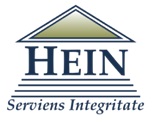ORCID
Katarzyna Klafkowska-Waśniowska - 0000-0003-4164-979X
Keywords
access to data, data sharing, open data, text and data mining, freedom of information, copyright, European Research Area, Internet of Things, Data Act
Abstract
This article explores the concept of the freedom of information, linked to the goals of the European Research Area, and its relations with the evolving concept of free movement and free flow of data. Both concepts relate to the fundamental principles of the single market: free movement, non-discrimination and market access. In the context of the internal market, public authorities need to ensure market access for private economic operators in the area of goods, services, the labour market and investment. Free flow of data and information is based on the autonomous understanding of “access” – not access to the market, but access to digital resources of both public and private actors. This implies a discussion whether there is a principle of free movement of data enshrined in the Treaty, and if not, would it be necessary to include an express reference to data in the single market context. There maybe two reasons for those deliberations, firstly, the question of competences of the European Union and its legislative powers. Secondly, it would mean potentially ranking free movement of data quite high, and discussing if it should be given priority over the principle of intellectual property protection.
Reference to the goals of the European Research Area provides the framework for considering the growing importance of the European Strategy for Data, but, at the same time, the difficulties surrounding the fact that our interest in data and information, often requires accessing material protected with exclusive rights. The main question considered in this article is how to solve the imminent conflict between control over the exploitation of protected works, videos, recordings or databases, with the objective of data access and sharing, furthered in data law. The overall objective, from the single market perspective, is to enable the flows of information and data. To demonstrate the potential conflicts concerning access and sharing, fostering the freedom of information is used as an example, with the focus on research and exchange of research data, and the example of IoT generated data in the Data Act.
Acknowledgements
Funding
This article received no funding
The cost of editing selected articles published in the Yearbook of Antitrust and Regulatory Studies in the 2022–2024 is covered by funding under the program “Development of scientific journals” of the Ministry of Education and Science under agreement No. RCN/SN/0324/2021/1. Task title: “Verification and correction of scientific articles and their abstracts”. Funding value: 36 298,00 PLN; The task consists of professional editing of articles published in English.
Declaration of Conflict of interests
The author declared no potential conflicts of interest with respect to the research, authorship, and publication of this article.
Declaration about the scope of AI utilisation
The author did not use AI tools in the preparation of this article.
Recommended Citation
Klafkowska-Waśniowska, K. (2024). The Quest for the Fifth Freedom: Access to Data and Information in Conflict with the Protection of Intellectual Property. Yearbook of Antitrust and Regulatory Studies, 17(29), 147-173. https://doi.org/10.7172/1689-9024.YARS.2024.17.29.5
First Page
147
Last Page
173
Page Count
27
DOI
10.7172/1689-9024.YARS.2024.17.29.5
JEL Code
K2
Publisher
University of Warsaw







